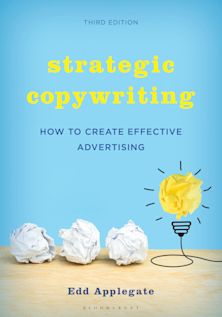“Happy Eating” and Food Addiction in American Advertising
“Happy Eating” and Food Addiction in American Advertising
This product is usually dispatched within 1 week
- Delivery and returns info
-
Free US delivery on orders $35 or over
Description
This book explores the addictive techniques used in advertisements for ultra-processed foods, which promise consequence-free eating to consumers while at the same time encouraging over-consumption of unhealthy food. Debbie Danowski presents an analysis of promotional techniques in the context of food addiction characteristics and behaviors through an exploration of the themes used in this type of advertising. These thematic messages include using food to rebel, to play, to relax, to achieve happiness, to replace exercise, to achieve good health, to increase intelligence, to show love, to bond with others, and to create environmental change. Ultimately, Danowski argues that these competing and contradictory messages have had long-term negative ramifications for American habits of consumption, both literally and figuratively. Scholars of communication, advertising, media studies, and food studies will find this book particularly useful.
For more information, check out this conversation between the author and Susan Branscome, host of Food Addiction: The Problem and The Solution.
Table of Contents
Chapter Two: I'll Eat What I Want, When I Want
Chapter Three: Kids Know Best What to Eat
Chapter Four: Breathe Deeply and Eat
Chapter Five: Be Happy and Eat
Chapter Six: Move and Chew
Chapter Seven: Be Healthy and Eat
Chapter Eight: Eat and Be Smart
Chapter Nine: Eat This Because I Love You
Chapter Ten: Chew and Make Friends
Chapter Eleven: Chew and Change the World
Chapter Twelve: Start Worrying and Change Things
Product details
| Published | Oct 30 2023 |
|---|---|
| Format | Hardback |
| Edition | 1st |
| Extent | 232 |
| ISBN | 9781666939262 |
| Imprint | Lexington Books |
| Dimensions | 9 x 6 inches |
| Publisher | Bloomsbury Publishing |
Reviews

ONLINE RESOURCES
Bloomsbury Collections
This book is available on Bloomsbury Collections where your library has access.


























